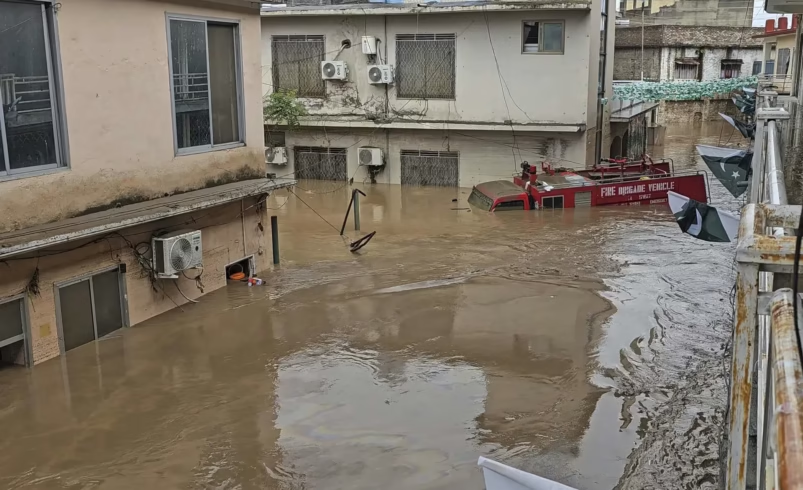Pakistan’s Monsoon Devastation: Over 350 Dead in Flash Floods
- August 17, 2025
- 0

Pakistan is grappling with severe monsoon-induced flash floods and landslides, resulting in a tragic loss of over 350 lives. The northern regions, particularly Khyber Pakhtunkhwa’s Buner district, have been hit hardest. These catastrophic events were triggered by relentless heavy rains, reminiscent of the devastating floods that struck the country in 2022. The current situation has left many communities in despair as homes and critical infrastructure have been swept away.
The floods have caused widespread destruction, severely damaging roads and making rescue operations challenging. Many areas remain inaccessible, complicating efforts to deliver aid and evacuate those in danger. The destruction of infrastructure has not only hindered immediate rescue efforts but also poses long-term challenges for rebuilding and recovery.
Meteorological departments have issued warnings of continued rainfall, raising concerns about further flooding and landslides. This looming threat has heightened the urgency for effective disaster response strategies to prevent additional loss of life and property.
Despite the obstacles, rescue teams are working tirelessly to reach affected areas. However, damaged roads and communication lines have slowed their progress. The government and local authorities are coordinating efforts to provide relief to those impacted, but the scale of the disaster presents significant logistical challenges.
The current monsoon disaster serves as a stark reminder of the need for improved infrastructure and disaster preparedness in Pakistan. Learning from past experiences, there is a pressing need for comprehensive planning and investment in resilient infrastructure to mitigate future risks.